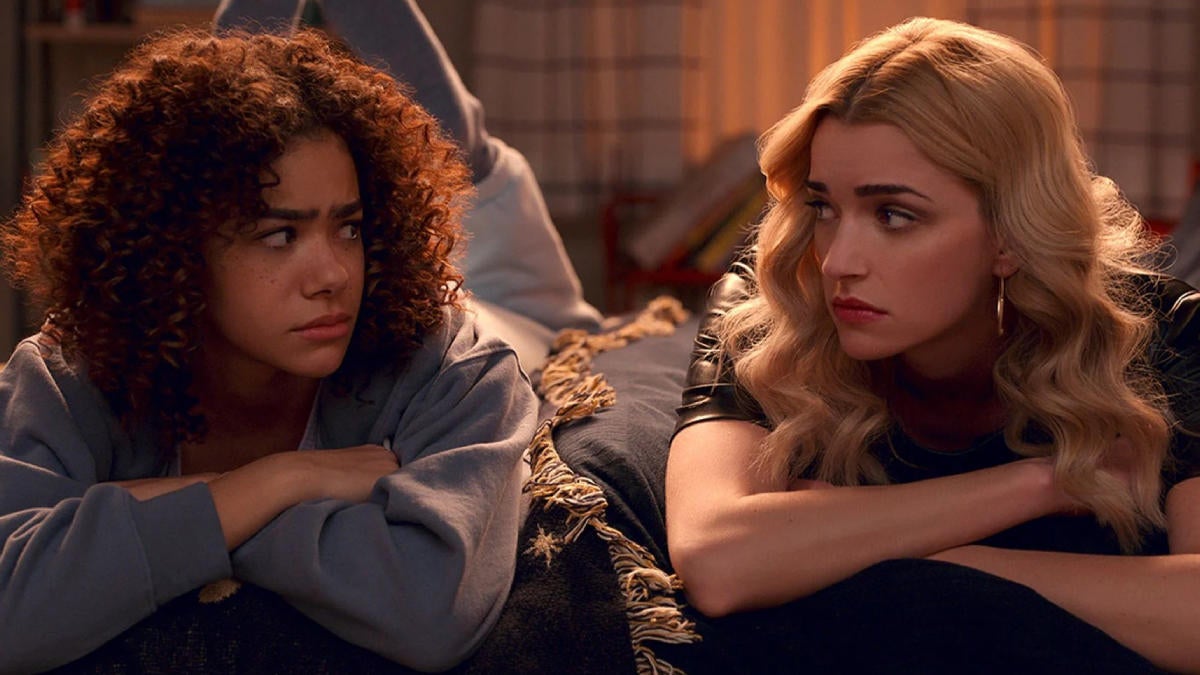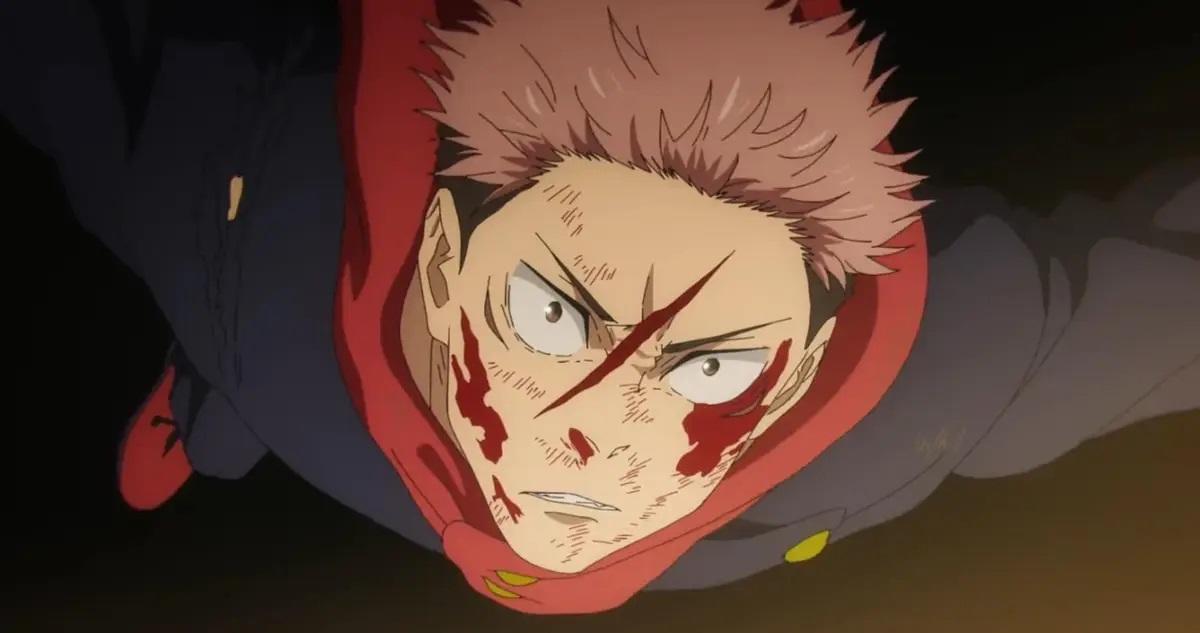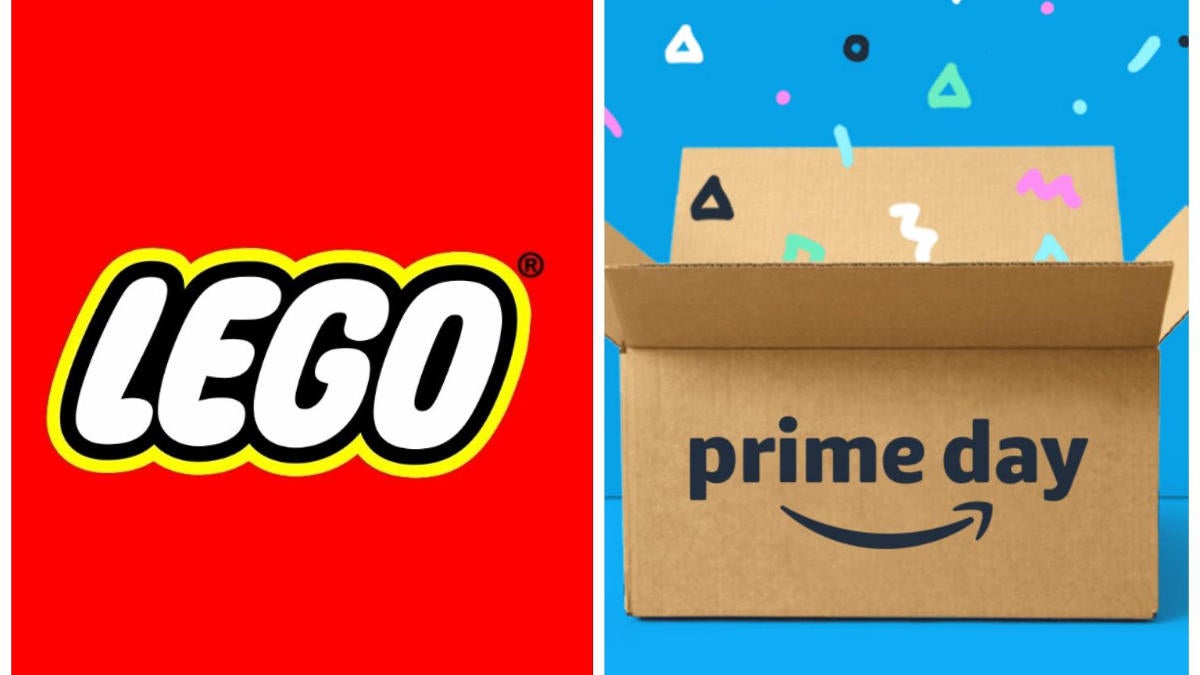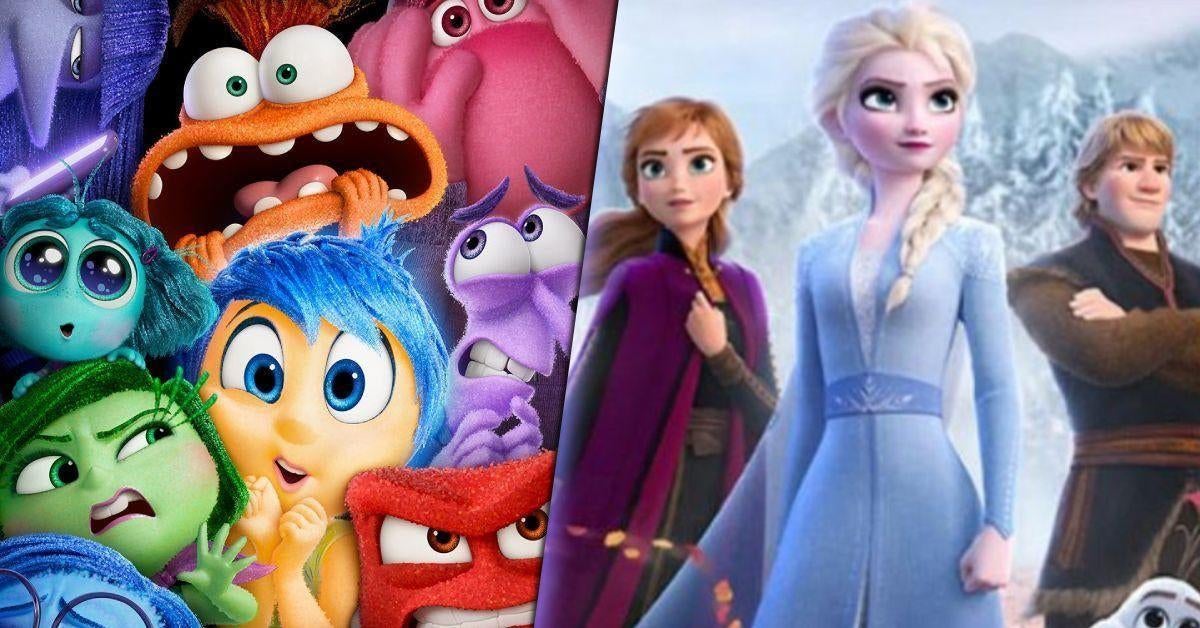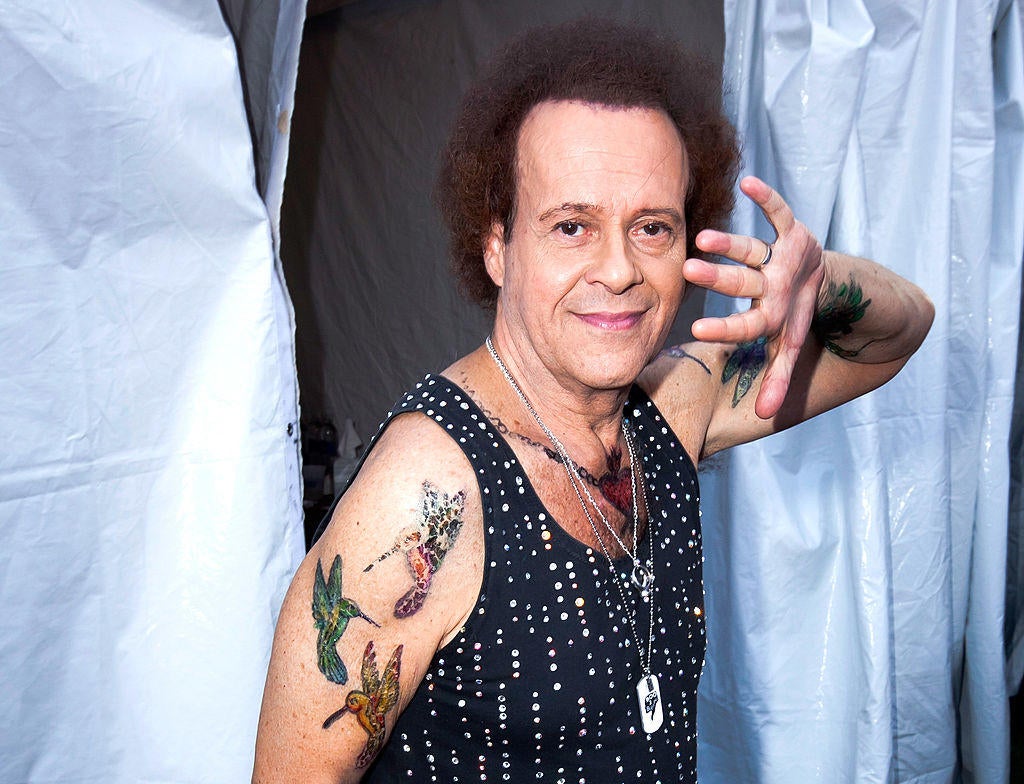Shrek Turns 20: An Interview With Director Vicky Jenson
On May 18th, 2001, DreamWorks released Shrek into theaters across the country and changed the [...]
Shrek's Legacy
Charlie Ridgely (ComicBook.com): Shrek has taken on such a huge life over the last 20 years, more so than I think anyone could've imagined, I'm sure more than even you all imagined.
Vicky Jenson: Yeah, we didn't even really know how it was going to be received just as a movie. When we were working on it we were up in Palo Alto, it was kind of like a satellite studio, it was it's own studio at PDI and DreamWorks was working with them, and then eventually bought them while we were working on the movie, but we were removed from the main studio and so it just sort of felt even more like a small production where we were putting on a show for each other.
Sequences would come up, we'd be working with them and you're in the details, and then you kind of sit back and watch it and go, "Wow, this is really weird. I mean, it's fun, but it's so different. I wonder how people are going to feel about it, but I think I like it." So we had no clue that the reaction was going to be what it was.
It was such a departure from what studios like Disney and Pixar were doing at the time. Even tonally it was so unique and it really set a standard for what came next, to a point where I feel like there's such a challenge for animated movies that followed. And it's crazy to look back now at how it still stands that test, it still really holds up in that way.
Yeah, I think for a number of reasons, but it was sort of a parody of these kinds of movies, animated fairy tales, and the only one doing that at the time was Disney over the years. The Disney model was still very reverential, and very aspirational, and inspirational and the musicals were composed for the movie, so you would never have this indie influence of existing songs dropped in for score, to set a mood. So no one, as far as I know, had done that in an animated movie and relied on that to hit the key emotional moments in the movie as a live action movie would.
And then the tone, the reverential irreverent humor, was also a bit different. Not taking itself too seriously, but at the same time letting real feelings come through. Shrek used humor to keep everybody away, but he had a broken heart and when he revealed it to Donkey, you felt it. So yeah, finding the balance, it was trial and error. That's the benefit of animation.
Development
And from my understanding, correct me if I'm wrong, you came into the project after development had started, correct?
Yes the development had started, but no production. In fact, character design wasn't even final, so some sequences had been boarded, there was one version of the movie scripted and I saw a screening before I joined the movie; very, very different story, very different tone and a little bit schizophrenic. Some aspects were super high action adventure, and then some friends of mine that knew from my Ren and Stimpy days had been boarding some sequences that were just insane and just hilarious. The producers at the time were like, "We don't know how to fit those in with this," and I'm saying, "Drop this and just, let's do that. That's what I would do."
And that's really the direction that happened, embracing more and more of the humor and less and less of the action adventure aspects of the movie.
You and Andrew Adamson were the two directors on Shrek, and I remember reading that you two essentially split the film itself in half and worked on individual parts. What can you tell me about that collaborative process?
Right. At the time the idea that you had to have two directors was very prevalent, and I'm sure it came from Jeffrey Katzenberg and his experience at Disney, but it's a huge job. It's so huge that when they write you your schedule, we had these things we called buck slips that had like, 8AM this. It would say pee break, I mean you're just that booked through the day, so his feeling was, you had to have two people to divide the work. And every movie and group of directors had their own way of breaking it up.
I know on Prince of Egypt for instance, they had a director that worked just with story and another director that worked more with animation. Both of us really wanted to do everything and work with each department, and really direct the movie, so we broke it up in sequences. A sequence would be everything that happens in one location, the opening of the movie with Shrek's walk and the credits, the gingerbread man sequence. So we divided the movie up that way. That made us the creative heads of it, or people would know who to go to for all the details, and the end of every day we would show each other where we were, so the other one could give input or like, "Oh yeah that's great, but maybe try this." So we could both focus with the animators, with the production design, certainly with our editors to really develop the sequences.
And then every now and then we'd swap, if somebody's dance card emptied out and the other one had a couple of extra sequences, we might swap them out. It was a really fun way to work because then we both got to do everything.
Production Challenges
Was there a specific scene or location in the movie that was really challenging for you and your team during production?
Well my first action-y kind of sequence was [Shrek and Donkey] crossing the bridge. I'd come from storyboard, I'd come from production design, but I hadn't been an animator before.
The staging was like a movie, it's 3D, I've never worked in 3D before. So the staging, how to put the camera, so all of that was happening to me all at one time when I became one of the directors, and this was my first sequence to oversee through production, so I'll always remember sequence 800, the bridge. I know I drove some of the animators a bit crazy, because I wasn't used to seeing blocking, it didn't know what that looked like.
People sometimes forget or don't realize that, when you say something like "sequence 800," just how much goes on behind the scenes of an animated project compared to what you actually see on the screen.
Like making a movie, you can't send someone to the prop house to go and pick up a bunch of stuff, everything has to be designed. My first days directing up North, I'm sitting in a darkened room with all these heads behind me and they show me a gray log, right? "What do you think about this log?" And I'm like, "It needs bark." And they go, "Well that comes later, that comes in lighting and surfacing, but what do you think about the shape of it?" I'm like, "It'll do."
But that's the thing, it's 100s of decisions throughout the day, approvals and making sure that whoever's designing the forest is designing the same look for a movie that you have with Duloc and that kind of thing. It was such an education for me, my first time working with so many different aspects.
Journey to Duloc
It's interesting you bring up Duloc, because that's such a key moment in the film, when the of world of Shrek opens up. At first it's just the swamp and the fairytale creatures, but you get to Duloc and it's a totally different scenario. It's so much bigger.
Yeah, it was a lot of fun, and I've got to credit a director that was at PDI, Eric Darnell, he was a guest star storyboard artist on the movie, he'd come off of Antz and the dolls and song were his brain child, it was just hilarious. It's so wonderful to be able to be surrounded by amazing comedic talents, almost like you're directing traffic. Conrad Vernon, who I knew from Ren and Stimpy, and eventually became a director at DreamWorks and directed on subsequent Shrek movie films, his sense of humor is just so out of this world, and out of the box and he storyboarded one of the sequences I got to sort of take the lead on that gingerbread torture sequence, the interrogation.
And honestly, a lot of the job is just recognizing genius and making sure that you just get rid of the weeds that are in the way and hang onto that genius, the comedy gold that if it threw you on your ass laughing in storyboard when it was first pitched, you have to protect that. Even as the year goes by and you see the sequence over and over again, you can't get bored, you have to remember no one else will have seen it before.
Conrad voiced the Gingerbread Man too, right?
Yeah he did. A lot of the voice artists voiced different characters and stayed with it. The voice of the Magic Mirror we first thought of as like a host, like The Dating Game host. When we actually went to record it just wasn't quite right, [the actor] didn't have the comedy chops or some of the acting chops, but the voice was there. And then we tried a couple of comedians and they couldn't land just this funny mix that Chris Miller [had] at the time, who then ended up directing Puss in Boots. He was one of our board artists, there was just something fun about his scratch version of Magic Mirror that we had to keep it. And that happened throughout the project, except for me.
I did the voice of the old lady that sells Donkey, one voice and I think Andrew goes, "I don't know, it just sounds like Vicky doing a funny voice," so I'll blame Andrew for taking me out of the movie.
That's a shame.
Yeah, no residual checks for me.
Chris Farley and Mike Myers
Chris Farley was originally supposed to voice Shrek but he passed away early in production. His version was obviously very, very different from what Mike Myers ended up doing after he came on.
Well I started on the movie as a story artist after Chris Farley passed away. So the movie was already in a transition. And the story wasn't final, but there was a screening and that's part of our process. And so to be fair, it wasn't just Myers that changed the character, the story changed. So when we hit on this idea of the fairytale refugees that come to Shrek for help, that was new, that was not in the Chris Farley version. So, the reluctant hero was a new aspect to the movie, where the version that I first saw, Chris Farley was very earnestly wanting to fit in with humans, so the story was naturally evolving.
When we were trying to figure out who it could be, all of us were huge fans of Mike Myers and he was blowing up of course, he'd done Wayne's World the movie, but it was right around the time [of Austin Powers] because we started talking to him then. So a bunch of us on the movie were big fans of his, and so we pitched him to Jeffrey in the studio, and we met him and had dinners with him. Yeah, so the rest is history.
So the story was evolving anyway and the accent wasn't right away, the Scottish accent, he came into to read just for testing it and hearing the scenes out loud after we had discussed the movie with him for a long time.
At that time there was a scene where Shrek is kicked out of his swamp by his parents, and has found his own place and gets a letter from his dad. And so Mike decided to read that letter in the voice of his own dad, the Scottish accent, and Andrew and I just grab each other and go, "Mike wait, can you do that?" And he's like, "Oh no, no I'm trying to save that for a character." Fat Bastard, right? I said, "Oh come on, it's just so good, it's so good. If his dad has that accent, why can't he have it?"
So we did that, we went with the Scottish accent, and eventually it evolved to sort of a Scottish-light accent, but it gave him a lot room for color and adlibs. He seemed to really love being within a character, rather than using his own voice. He told us about his experience on So I Married an Axe Murderer, and playing himself wasn't as fun or comfortable for him as the other characters.
Which explains why he plays like seven different characters in Austin Powers.
Yeah, right. Takes the reigns off.
The Genius of Eddie Murphy
It's hard to think of what Shrek would've been without Myers and that accent. The same goes for Eddie Murphy's take on Donkey.
Yeah, again he was cast just before I came onto the movie and working with him was great. I mean he is the ultimate professional. He's not terribly chatty, he doesn't pal around. I think there's a lot of people after his time, but he is so focused, he was so present. So the board artist might come in and pitch him a sequence, or we would pitch him a sequence right from the board so he could see what's happening, and he'd really watch intently, and he'd take it in and he'd process it. But he wouldn't necessarily ask a lot of questions or like I say, pal around.
"Couple of questions. Mm-hmm (affirmative), mm-hmm (affirmative). Okay, I think I... All right, well let's do it." So he'd step up to the mic and he's just calm and still, and then all of a sudden Donkey comes out, and he was just free and full of energy, and ideas and just became Donkey. It was really, really fun just to watch that change in him.
Eddie, isn't exactly known for his subtlety, but his subtlety is what makes him so great. The little things he does in between the big things make him such a phenomenal comedian.
Well that's why we videotaped everything so that the animators had access to see that little eyebrow lift on both of them, because half of what makes what they're doing funny is their face right afterwards, that lets you know what the intent of that was.
"The Accent That Almost Wasn't"
Between Murphy and Myers I have to assume there were a ton of lines that weren't part of the original plan.
Oh so many.
Are there any specific lines or moments that come to mind?
The burp, "Better out than in." Oh gosh, yeah just so many. Mike would read the lines and then put it through his Shrek filter, so it's hard to say. For a little while we didn't have the accent, I'm not sure if I told this story back in the day, but when we screened the movie for the first time in the DreamWorks Theater for Steven Spielberg — who was the S in SKG — his first words after the screening, and they had about maybe eight to 10 minutes of Shrek animated to Mike's voice and he's like, "This is really the sweetest, funniest movie I've seen, but why is he doing an accent? It might be alienating to people."
And we're like, "But it's the character." And yeah he was really resistant, so resistant that we actually were told to have Mike do it without the accent. So we go to Mike, and that was really hard to tell him, let's try this and we explained to him about the Spielberg screening. And so he re-recorded everything just as his own voice, and as the months go by we continue to animate, and it gave him a chance to do a couple of adlibs, additional adlibs.
So we have another screening for Steven. And he's going, "This is the sweetest, funniest movie I've seen, but Mike needs an accent." Andrew and I look at each other, we're like, "He does Scottish." And they were like, "Well, anything else?" Like, "German?" So, I think Steven finally realized, yes, let him have that character. So it gave him another opportunity, this time to kind of back off the brogue a bit, so that's why we call it Scottish-light, and adlib even further some scenes that he had already done, and we reanimated all those again plus new ones because you just keep building.
So, it was the accent that almost wasn't.
Sequels and Spinoffs
Shrek had three direct sequels, a Puss in Boots spinoff, and countless different TV specials. Were you all concerned with planting any scenes for what come come later? Was there any thought of a sequel during this process?
Not for me.
It just feels like studios are always looking for the next franchise, and Shrek certainly became a behemoth.
It's just so hard to make a movie, it's really hard that you can't make two and three as well. I mean look, we killed Farquaad. He was a great character, but we killed him, so couldn't bring him back. He was on the ride, if you went to the Shrek ride at Universal, he's a ghost. I'm working with one of our producers, David Litman was one of our producers on Shrek, and he went on to help create that ride, he put Farquaad in as a ghost. So he's working with me at Skydance right now on Spellbound, it's really fun to have some of the team back.
It feels like you never would've killed Farquaad on-screen if there were conversations about making a second movie.
Exactly. It's just so hard to make one story, and you want to make it right, make it work and do what's right for it, and not worry about what's going to happen next. We gave Shrek his happy ending nobody was thinking about. In fact, it was months later when the studio asked for story ideas from the whole studio, like kind of a contest to come up with a Shrek 2, what could it be? So yeah, we weren't planning on it.
And the sequels just went in wild, zany directions for the most part.
Yeah they did.
I still have trouble processing the Donkey-Dragon babies. And Puss in Boots really became it's own unique thing.
I love Puss in Boots.
Fond Memories and John Lithgow
When you look back, what are the fondest memories for you from bringing that movie to life? What do you think about when you think about making Shrek?
I guess some of my fondest memories are sitting in the story room with the story team, just feeling that little group of insane, funny people. When I joined them too we were all in one room when I was on the story team, we were all in one room, not in separate offices. And that persisted, whether we were in LA at the Burbank DreamWorks, or we were up North, we flew up North to work together, one room. You just don't see that anymore, so the sense of the writer's room, the comradery the closeness, it was really, really special for me and I adored that.
Just working collaboratively like that was just so much fun. John Lithgow, getting to meet and talk with him. He came up to the studio to visit the studio and nobody else took the time, and he was just so dear, he walked through the whole studio. He came out afterwards saying, "Well sometimes you don't want to know how sausage is made, but it was really delightful to be here." Because I think we wouldn't let him go, we just showed him everything. There's just so many really great memories.
Seeing it with an audience for the first time was just, there's nothing like that seeing people react.
Spellbound
And now you're working on a new animated film for Skydance called Spellbound, which you said comes out next year?
November 22nd of 2022.
And you're directing that one as well?
Yes. And Alan Menken is writing the music with Glen Slater's lyrics, super excited about it. I've never worked on a musical before where we're actually creating the songs, God it's fantastic. I can't even tell you what an experience... It's a very unusual movie as well and it has a lot to say, it really leads with meaning and that excites me.
